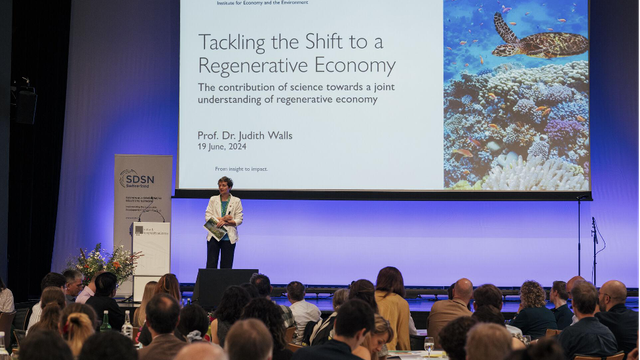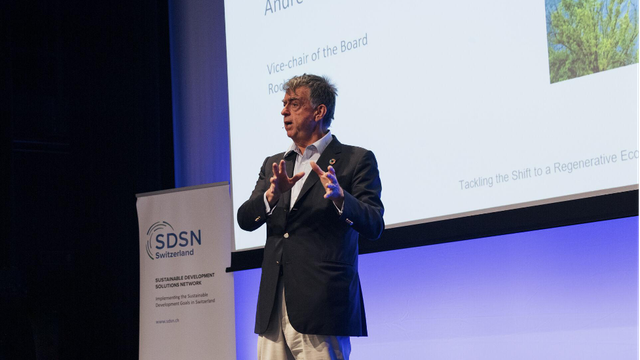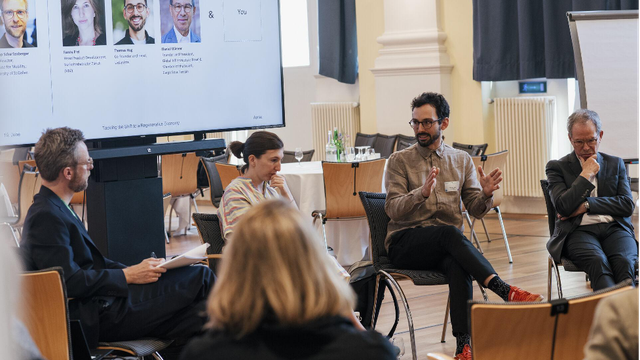Exploring Regenerative Economy: Insights from SDSN Switzerland's Annual Conference
“As we are nearing potentially irreversible tipping points in our socio-ecological systems, there is a greater need for going beyond limiting harm and moving towards repairing the harm done and creating positive outcomes for both nature and society.”
SDSN Switzerland recently concluded its highly anticipated Annual Conference on the theme of regenerative economy, hosted in collaboration with the Institute for Economy and the Environment at the University of St. Gallen (IWÖ-HSG). The event served as a dynamic forum, uniting visionary thinkers, leading scientific experts, and innovative businesses to delve into the opportunities and challenges presented by a regenerative economy.
The conference aimed to showcase and document the theoretical foundations and practical implementations of regenerative practices. This emphasis underscores SDSN Switzerland's commitment to fostering a joint understanding between academia and industry, crucial for advancing sustainable economic models.
Keynote speakers at the event included André Hoffmann, environmental advocate and Vice-Chairman of Roche, who highlighted the role of business as a force for positive change. Judith Walls, Director of IWÖ-HSG, brought scholarly insights into the economic dimensions of sustainability and regeneration.
A significant outcome of the conference was the launch of a white paper by IWÖ-HSG, University of St.Gallen, and SDSN Switzerland. This seminal document defines regenerative economy through a comprehensive review of academic literature, distinguishing it from the concept of sustainability. The proposed definition underscores regenerative economy as a system fostering renewal, restoration, and net positive impacts across ecological, economic, and social dimensions.
“The concept of regenerative economy has grown among academics and practitioners in recent years. However, there is no clear agreed upon definition of regenerative economy. In this white paper, we aim to define regenerative economy by exploring its core concepts and distinguishing it from other concepts such as sustainability. To do so, we conducted a systematic review of key academic literature.”
To further explore these concepts and understand their distinctions from sustainability, ESGs, CSR, and circular economy frameworks, the authors have released a concise discussion paper. This resource includes a useful table outlining these differences, providing clarity for stakeholders interested in advancing regenerative practices.
About SDSN Switzerland
SDSN Switzerland is the Swiss Network of the SDSN working on localizing the 2030 Agenda and the Paris Climate Agreement. The network brings together more than 50 member institutions - universities, institutes, NGOs - and it builds partnerships with businesses.


